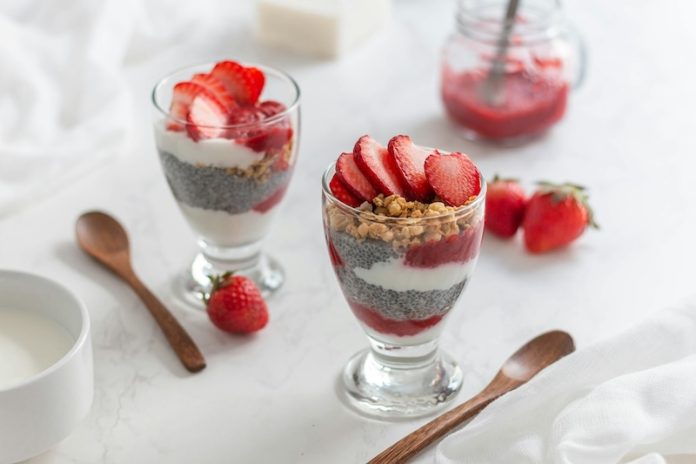
As we age, taking care of our heart and gut becomes even more important. The heart pumps blood to keep us going, while the gut helps us digest food and absorb nutrients. Surprisingly, the health of these two organs is closely connected.
Research shows that eating the right foods can support both heart and gut health, improving overall well-being and lowering the risk of diseases like heart attacks, strokes, and digestive disorders. Here’s a look at some of the best foods for people over 50 and how they benefit the body.
Fiber-rich foods are at the top of the list for gut and heart health. Whole grains, like oats, brown rice, and quinoa, are excellent sources of soluble fiber, which helps reduce bad cholesterol levels and keep the heart healthy.
Fiber also feeds the good bacteria in the gut, supporting a balanced microbiome. A healthy gut microbiome has been linked to lower inflammation, which benefits both the digestive system and the heart.
Fruits and vegetables are also essential for people over 50. Berries, such as blueberries and strawberries, are packed with antioxidants called flavonoids that protect the heart by improving blood vessel function and reducing blood pressure.
At the same time, these antioxidants help reduce inflammation in the gut, supporting healthy digestion. Leafy greens like spinach, kale, and Swiss chard are high in nitrates, which promote healthy blood flow and support the gut lining.
Fermented foods like yogurt, kefir, sauerkraut, and kimchi are excellent for gut health because they contain probiotics—live bacteria that help maintain a healthy balance of microorganisms in the gut.
A strong gut microbiome not only improves digestion but also reduces the risk of heart disease by lowering inflammation throughout the body. Studies suggest that people who regularly eat fermented foods have lower blood pressure and cholesterol levels, making these foods a win-win for gut and heart health.
Fatty fish, such as salmon, mackerel, and sardines, are another must-have for people over 50. They’re rich in omega-3 fatty acids, which are well-known for their heart-protective benefits, including reducing triglycerides and lowering the risk of irregular heartbeats.
Omega-3s also have anti-inflammatory effects that benefit the gut, particularly for individuals with conditions like irritable bowel syndrome or inflammatory bowel disease.
Nuts and seeds, like almonds, walnuts, chia seeds, and flaxseeds, are powerhouses of nutrition for the heart and gut. They provide healthy fats, fiber, and plant-based protein.
Walnuts, for example, are rich in omega-3 fatty acids and polyphenols, which protect the heart and nourish gut bacteria. Chia and flaxseeds are especially high in soluble fiber, helping maintain steady cholesterol levels and keeping digestion regular.
Legumes, such as beans, lentils, and chickpeas, are another excellent choice for people over 50. These plant-based proteins are high in fiber and low in saturated fat, making them great for the heart.
The fiber in legumes also acts as a prebiotic, feeding the beneficial bacteria in the gut and promoting a healthy digestive system. Research has shown that people who eat legumes regularly have a lower risk of heart disease and better gut health.
Lastly, dark chocolate with at least 70% cocoa can be a treat that’s good for both the heart and gut. Dark chocolate contains flavonoids that improve blood flow and reduce blood pressure, while also encouraging the growth of good gut bacteria.
Studies have shown that moderate consumption of dark chocolate can support heart and gut health without adding too much sugar to the diet.
Eating a variety of these foods not only supports gut and heart health but also provides essential nutrients for overall vitality. Combining these dietary choices with regular exercise, stress management, and proper hydration can help people over 50 feel their best and stay healthy for years to come.
If you care about heart health, please read studies that apple juice could benefit your heart health, and Yogurt may help lower the death risks in heart disease.
For more information about health, please see recent studies that Vitamin D deficiency can increase heart disease risk, and results showing Zinc and vitamin B6 linked to lower death risk in heart disease.
Copyright © 2025 Knowridge Science Report. All rights reserved.



